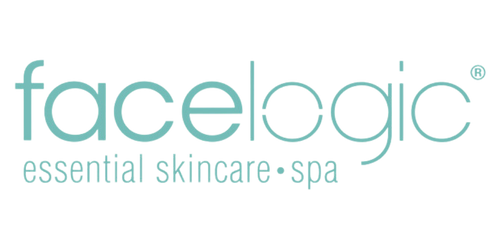Navigating Acne Treatments in Dallas: What Works?
Acne is a common skin condition that affects millions of people worldwide, and navigating the realm of acne treatments can be overwhelming. In the bustling city of Dallas-Fort Worth, there is no shortage of dermatologists and skincare clinics offering various solutions for tackling acne. But how do you know which treatment is right for you? The key lies in understanding the different types and causes of acne and working with a qualified dermatologist to create a personalized treatment plan. In this blog post, we will explore the world of “navigating acne treatments in dfw what works”, providing you with the knowledge and tools to make an informed decision for your skin’s health.
Key Takeaways
- Understanding acne is key to finding the right treatment plan.
- Various treatments are available, from topical solutions to dermatological procedures and hormonal therapies.
- Consulting with a specialist at Facelogic Dallas can help create personalized plans for clear skin.
Understanding Acne: Causes and Types
Acne is a skin condition characterized by blocked hair follicles due to an accumulation of oil and dead skin cells. The four main causes of acne are an overproduction of sebum, obstructed pores, hormonal imbalances, and the accumulation of dead skin cells in the pores. A thorough comprehension of the various forms and symptoms of acne is imperative for deciding on the most effective treatment plan.
The typical forms of acne include:
- Pimples
- Whiteheads
- Blackheads
- Cysts
Moderate acne may involve a combination of these forms. Cystic acne, the most severe form of acne, is characterized by the formation of tender, fluid-filled cysts beneath the skin. Adult-onset hormonal acne can present as papules, pustules, blackheads, whiteheads, or deep cysts.
Proper acne treatment is crucial to prevent worsening of the problem or its recurrence. If not managed properly, persistent acne itself can result in emotional distress, reduced self-esteem, and depression. In more serious cases, it can even cause permanent scarring and affect skin tone. For effective acne treatment in Dallas, a tailored treatment plan formulated by a board-certified dermatologist is recommended. This plan may include a combination of oral antibiotics, isotretinoin, hormonal therapy, concentrated topicals, chemical peels, and laser treatments.
For adult acne treatment, consultation with dermatologists is recommended to ascertain topical therapy is the most appropriate solution. In addition to a tailored treatment plan, maintaining a gentle cleansing routine twice a day with a mild cleanser and lukewarm water is suggested for acne-prone skin.
Topical Acne Treatments: Over-the-Counter Solutions
Topical acne treatments, such as benzoyl peroxide and salicylic acid, are available over-the-counter and can be effective for mild to moderate acne. These solutions work by unclogging pores and reducing inflammation. Other effective topical treatments for acne include salicylic and azelaic acids, which help clear bacteria from pores, encourage cell turnover, and reduce inflammation.
For mild acne, dermatologists may suggest topical antibiotics like clindamycin and dapsone. Topical acne medications are available in gel, lotion, and cream forms, making it easy to find a product that suits your skin’s needs. Benzoyl peroxide and salicylic acid have both been shown to be very effective treatments in treating back acne, as they dissolve dead skin cells that accumulate and obstruct pores, target bacteria that cause acne, and reduce inflammation.
Usually, several weeks of acne treatment are required before noticeable improvement in acne occurs again. Even then, the improvements may be gradual and success is not always guaranteed. However, skin characteristics, the intensity and type of acne, and other considerations may play a role in the rate of progress when undergoing an acne treatment. To reduce the likelihood of developing back acne, implementing certain skincare products and making lifestyle modifications may be beneficial in treating mild forms of back acne.
Retinoic acid is a powerful acne treatment that functions at the cellular level by shedding the outer skin layer and reducing dead cells in hair follicles. It assists in diminishing the formation of comedones, pimples, and pustules, offering further relief from acne symptoms.
Prescription Medications for Acne
When acne is severe or over-the-counter treatments fail, dermatologists might prescribe oral medications such as:
- Antibiotics (e.g. tetracycline, doxycycline, and minocycline), which work by reducing inflammation and killing the bacteria that contribute to acne
- Isotretinoin, a powerful medication that reduces oil production and prevents clogged pores
- Spironolactone, a medication that blocks the effects of certain hormones and reduces oil production
These oral medications can be effective in treating stubborn acne when used under the guidance of a dermatologist.
Isotretinoin, commonly known as Accutane, is a powerful prescription medication typically prescribed for moderate to very severe cases of acne, including cystic or nodular acne. It works by reducing the size and activity of the sebaceous glands, decreasing oil production and inflammation, and preventing clogged pores. However, due to its potential side effects, isotretinoin should be used under the close supervision of a dermatologist.
Spironolactone is another oral medication that inhibits androgenic activity on the skin, reducing oil production and inflammation. This treatment is especially beneficial for adult women suffering from hormonal acne, as it can help balance hormonal fluctuations and reduce breakouts. It typically takes three months for spironolactone to achieve full results.
Topical clascoterone, also known as WINLEVI, is a newer prescription medication designed to target the effects of acne-causing hormones in the skin. By reducing inflammation and oil production, this treatment can be a valuable addition to an acne treatment plan, especially for those struggling with hormonal acne. It should be applied twice daily for optimal results.
In-Office Dermatological Procedures for Acne
In-office dermatological procedures, such as chemical peels, laser therapy, and broadband light treatments, can help treat acne and reduce the appearance of acne scars. Chemical peels are a cosmetic dermatology solution that can improve the texture, tone, and overall appearance of the skin by removing the outermost layer of skin cells. This exfoliating process can help unclog pores and reduce inflammation, making it an effective acne treatment option.
Laser skin resurfacing is another treatment that has been found to be effective for acne. By using targeted laser energy to remove damaged skin tissue and stimulate collagen production, laser resurfacing treatments can help reduce the appearance of acne scars and even out skin tone. This treatment can also help to reduce the size and activity of sebaceous glands, further preventing acne scarring and future breakouts.
Broad Band Light (BBL) treatments are a minimally invasive procedure that utilizes intense pulsed light (IPL) or laser technology to treat acne. The benefits of BBL treatments active acne include:
- Effective removal of acne, redness, and scarring caused by blemishes
- More effective than over-the-counter products or medications for acne
- Potential to reduce scarring from acne
One specific BBL treatment, BBL Forever Clear, works by stimulating new collagen production, resulting in smoother, more evenly textured skin and a reduction in the appearance of acne scars. This laser treatment also is especially beneficial for women with hormonal breakouts, as it can provide notable improvements in their complexion. A series of six BBL sessions is generally recommended to achieve clearer, acne-free skin.
Hormonal Acne Treatment Options
Hormonal acne can be particularly frustrating, as it tends to be triggered by hormonal fluctuations, making it more difficult to treat with traditional acne treatments. However, several hormonal acne treatment options are available, including oral contraceptives, spironolactone, and the topical medication clascoterone.
Oral contraceptives, or birth control pills, can help regulate hormonal imbalances in women, reducing the likelihood of acne breakouts. While not every birth control pill is suitable for treating acne, dermatologists can recommend specific pills that are more effective at addressing hormonal acne.
Spironolactone, as mentioned earlier, is an oral medication that inhibits androgenic activity on the skin, reducing oil production and inflammation. This treatment is especially beneficial for adult women suffering from hormonal acne, as it can help balance hormonal fluctuations and reduce breakouts.
Topical clascoterone (WINLEVI) is another option for treating hormonal acne, as it targets the effects of acne-causing hormones in the skin’s surface itself. By reducing inflammation and oil production, this treatment can help control hormonal acne breakouts and improve overall skin health.
Choosing the Right Acne Treatment Plan
Choosing the right acne treatment plan involves considering factors such as acne severity, skin type, and previous treatment experiences. Consulting with a dermatologist can help determine the most effective approach for your specific needs, as they can provide personalized advice and treatment plans tailored to your skin type and requirements.
Successful acne treatment hinges on an accurate diagnosis. Dermatologists will take into account the following factors when with acne patients and devising a tailored acne treatment plan:
- The intensity of your acne
- Responses to prior treatments
- Skin type
- Eligibility for prescription medications
They can also help identify the root cause of your acne and provide the most effective treatment options to diagnose acne.
Patience and consistency with your selected acne treatment plan are vital since noticeable improvements can take several weeks. Keep in mind that skin characteristics, the intensity and type of acne, and other considerations may play a role in the rate of progress when undergoing an acne treatment.
Alongside selecting the appropriate treatment plan, maintaining healthy skincare habits like cleansing, moisturizing, and sunscreen use is of the utmost importance. Preventative measures and lifestyle modifications can also help minimize the risk of future breakouts and maintain clear skin.
Maintaining Clear Skin: Prevention and Skincare Tips
Consistently following skincare habits is necessary for maintaining clear skin. Here are some tips:
- Cleansing: Gentle cleansing twice a day with a mild cleanser and lukewarm water is recommended for acne-prone skin.
- Moisturizing: Using a non-comedogenic moisturizer can help keep your skin hydrated without clogging pores.
- Sun protection: Don’t forget to use sunscreen with at least SPF 30 to protect your skin from harmful UV rays.
By incorporating these habits into your skincare routine, you can achieve and maintain healthy, clear skin.
Sun protection is vital for maintaining healthy skin, as it helps to protect against the damaging effects of ultraviolet radiation, such as skin aging and skin cancer. Choose a broad-spectrum sunscreen with an SPF of at least 30 and apply it daily, even on cloudy days.
Incorporating a healthy diet and regular exercise into your daily routine can also contribute to maintaining clear skin. A balanced diet rich in vitamins, minerals, and antioxidants can help support healthy skin cell growth and reduce inflammation. Regular exercise has been shown to increase blood flow, which can help nourish skin cells and remove waste products, including free radicals.
Lastly, stress management plays a crucial role in maintaining clear skin, considering that stress can instigate hormonal changes causing acne breakouts. Practicing stress management techniques, such as meditation, deep breathing exercises, and getting adequate sleep, can help promote overall well-being and support healthy skin.
Consultation with an Acne Specialist at Facelogic Dallas
Facelogic Dallas offers consultations with acne specialists who can assess your skin condition, recommend appropriate treatments, and create a personalized plan to help you achieve clear, healthy skin. By working closely with an acne specialist, you can ensure that your treatment plan is tailored to your specific needs and addresses the root cause of your acne.
Dallas Dermatology Partners, conveniently located for those living in the Dallas/Fort Worth area, including Addison, Plano, Richardson, and Frisco, offers efficient acne treatment tailored to the patient’s lifestyle and individual requirements. Their team of experienced dermatologists can provide personalized advice and treatment plans to help you achieve clear, healthy skin.
In addition to providing expert advice and treatment options, acne specialists at Facelogic Dallas can also recommend appropriate skincare products and lifestyle modifications to help maintain clear skin and prevent future breakouts. This comprehensive approach ensures that your skin receives the care and attention it needs to remain healthy and radiant.
Opting for consultation with a Facelogic Dallas acne specialist empowers you to control your skin’s health and set out on a path to clear, acne-free skin. With a personalized treatment plan and ongoing support from experienced professionals, you can confidently face the world with beautiful, healthy skin.
Summary
In conclusion, navigating acne treatments in Dallas requires a thorough understanding of the different types and causes of acne, as well as the various treatment options available. From topical acne treatments and prescription medications to in-office dermatological procedures and hormonal acne treatments, there is a solution for every skin type and condition. By consulting with a dermatologist and creating a personalized treatment plan, you can effectively address your acne concerns and achieve clear, healthy skin.
Maintaining clear skin requires consistent skincare habits, including cleansing, moisturizing, and using sun protection, as well as preventative measures and lifestyle changes to reduce the risk of future breakouts. Consulting with an acne specialist at Facelogic Dallas can help you assess your skin condition, recommend appropriate treatments, and create a personalized plan tailored to your specific needs.
Remember, achieving and maintaining clear skin is a journey that requires patience, consistency, and professional guidance. By taking charge of your skin’s health and seeking expert advice, you can embark on the path to a beautiful, acne-free complexion.
Frequently Asked Questions
Which treatments work the best to reduce acne?
The best treatments to reduce acne are benzoyl peroxide, clascoterone (Winlevi), resorcinol, salicylic acid, azelaic acid, topical antibiotics, retinoids and retinoid-like drugs, antibiotics, and dapsone. These medications work by killing excess bacteria, reducing inflammation, unclogging pores, and removing excess oil too.
Are they working on a cure for acne?
Doctors are currently researching an acne vaccine, showing promising results that indicate it could be successful in treating acne. Therefore, they are working on a cure for acne.
How long does spironolactone take to work for acne?
Spironolactone is generally started at 25-100mg per day and increased every 6-8 weeks until the desired result is achieved. Acne improvements may take up to 3-6 months to be seen.
What are the main causes of acne?
The four main causes of acne are an overproduction of sebum, blocked pores, hormone fluctuations, and an accumulation of dead skin cells in the pores.
What types of topical acne treatments are available over-the-counter?
Benzoyl peroxide and salicylic acid are the most common topical acne treatments available over-the-counter.


